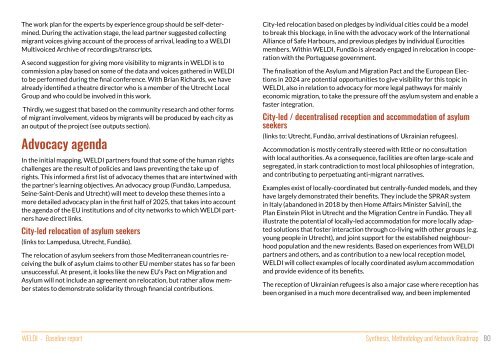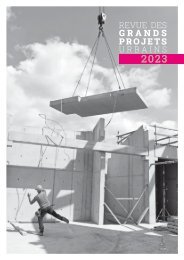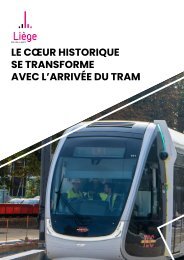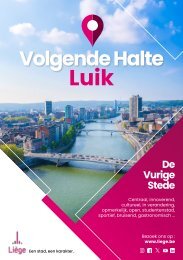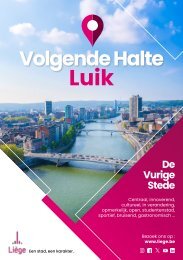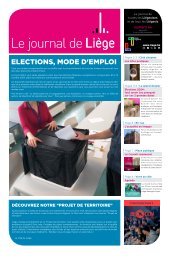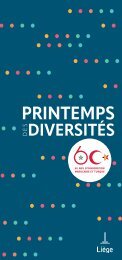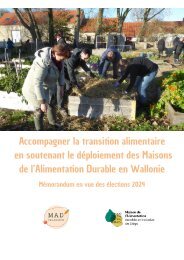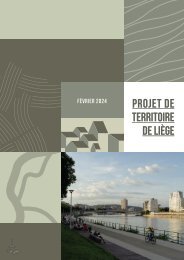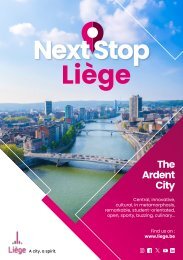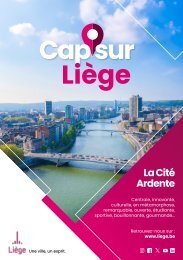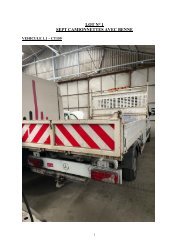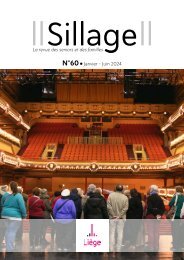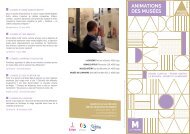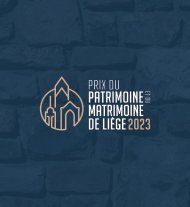Create successful ePaper yourself
Turn your PDF publications into a flip-book with our unique Google optimized e-Paper software.
The work plan for the experts by experience group should be self-determined.<br />
During the activation stage, the lead partner suggested collecting<br />
migrant voices giving account of the process of arrival, leading to a <strong>WELDI</strong><br />
Multivoiced Archive of recordings/transcripts.<br />
A second suggestion for giving more visibility to migrants in <strong>WELDI</strong> is to<br />
commission a play based on some of the data and voices gathered in <strong>WELDI</strong><br />
to be performed during the final conference. With Brian Richards, we have<br />
already identified a theatre director who is a member of the Utrecht Local<br />
Group and who could be involved in this work.<br />
Thirdly, we suggest that based on the community research and other forms<br />
of migrant involvement, videos by migrants will be produced by each city as<br />
an output of the project (see outputs section).<br />
Advocacy agenda<br />
In the initial mapping, <strong>WELDI</strong> partners found that some of the human rights<br />
challenges are the result of policies and laws preventing the take up of<br />
rights. This informed a first list of advocacy themes that are intertwined with<br />
the partner’s learning objectives. An advocacy group (Fundão, Lampedusa,<br />
Seine-Saint-Denis and Utrecht) will meet to develop these themes into a<br />
more detailed advocacy plan in the first half of 2025, that takes into account<br />
the agenda of the EU institutions and of city networks to which <strong>WELDI</strong> partners<br />
have direct links.<br />
City-led relocation of asylum seekers<br />
(links to: Lampedusa, Utrecht, Fundão).<br />
The relocation of asylum seekers from those Mediterranean countries receiving<br />
the bulk of asylum claims to other EU member states has so far been<br />
unsuccessful. At present, it looks like the new EU’s Pact on Migration and<br />
Asylum will not include an agreement on relocation, but rather allow member<br />
states to demonstrate solidarity through financial contributions.<br />
City-led relocation based on pledges by individual cities could be a model<br />
to break this blockage, in line with the advocacy work of the International<br />
Alliance of Safe Harbours, and previous pledges by individual Eurocities<br />
members. Within <strong>WELDI</strong>, Fundão is already engaged in relocation in cooperation<br />
with the Portuguese government.<br />
The finalisation of the Asylum and Migration Pact and the European Elections<br />
in 2024 are potential opportunities to give visibility for this topic in<br />
<strong>WELDI</strong>, also in relation to advocacy for more legal pathways for mainly<br />
economic migration, to take the pressure off the asylum system and enable a<br />
faster integration.<br />
City-led / decentralised reception and accommodation of asylum<br />
seekers<br />
(links to: Utrecht, Fundão, arrival destinations of Ukrainian refugees).<br />
Accommodation is mostly centrally steered with little or no consultation<br />
with local authorities. As a consequence, facilities are often large-scale and<br />
segregated, in stark contradiction to most local philosophies of integration,<br />
and contributing to perpetuating anti-migrant narratives.<br />
Examples exist of locally-coordinated but centrally-funded models, and they<br />
have largely demonstrated their benefits. They include the SPRAR system<br />
in Italy (abandoned in 2018 by then Home Affairs Minister Salvini), the<br />
Plan Einstein Pilot in Utrecht and the Migration Centre in Fundão. They all<br />
illustrate the potential of locally-led accommodation for more locally adapted<br />
solutions that foster interaction through co-living with other groups (e.g.<br />
young people in Utrecht), and joint support for the established neighbourhood<br />
population and the new residents. Based on experiences from <strong>WELDI</strong><br />
partners and others, and as contribution to a new local reception model,<br />
<strong>WELDI</strong> will collect examples of locally coordinated asylum accommodation<br />
and provide evidence of its benefits.<br />
The reception of Ukrainian refugees is also a major case where reception has<br />
been organised in a much more decentralised way, and been implemented<br />
<strong>WELDI</strong> - Baseline <strong>report</strong><br />
Synthesis, Methodology and Network Roadmap<br />
80


